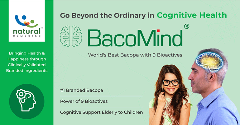News
Is Sugar Natural?
29 Sep 2014One of the key challenges when considering any natural proposition is that it is difficult to actually define ‘natural’ and how it actually differs from other aspects such as ‘clean label’. The clean label proposition is generally considered to be seeking natural alternatives to food additives, and listing on labels as the named ingredients rather […]

One of the key challenges when considering any natural proposition is that it is difficult to actually define ‘natural’ and how it actually differs from other aspects such as ‘clean label’.
The clean label proposition is generally considered to be seeking natural alternatives to food additives, and listing on labels as the named ingredients rather than by E-number. The reality, however, is that this does not extend far enough, since clean label extends further than E-numbers and additives and is increasingly seen to include ingredients themselves.
Alongside the evolution of ‘clean label’ has been the increase in the desire for ‘natural’ ingredients, which has been a macro trend for the last few years and continues to be important. With an ever-growing need for enhanced functionality of products, it is therefore natural to attempt to align the two trends to get the best of both worlds
Globally, there are various attempts to clarify the situation. In the US, the Food and Drug Administration (FDA) has indicated that the term ‘natural’ may be used provided it is truthful and not misleading (i.e. the product does not contain any artificial flavour or flavourings, colouring ingredients, chemical preservatives or any other artificial or synthetic ingredients) and the product and its ingredients are not more than minimally processed. The Food Standards Agency (FSA) in the UK also provides similar guidance for the use of the terms ‘fresh’, ‘pure’, ‘natural’ etc. in food labelling (Food Standards Agency, 2008).
Last week, I attended the Food Ingredients Global summit in London, and very much enjoyed the detailed content of many of the presentations. I was also privileged to chair a number of the sessions, which is always a great opportunity to think harder about some of the key themes and trends of such events.
In my R&D and Technical Innovation sessions there were a number of presentations including those by Omya and Biocatalysts that focused on the enhancement of various materials through ‘expert processing’. Such expert processes to enhance the functionality included enzyme treatments and surface area manipulation by spray drying amongst others. Such manipulation works on the premise that an increased surface area will enhance the overall reactivity, extend the application of the ingredients or deliver a greater degree of impact. The same principle has been applied to salt and other applications such as sugar – the ultimate aim being to reduce the actual amount, but maintain its efficacy, Another of the topics discussed by my colleague Kathy Groves considered the role of nanotechnology, and considered the question of whether it was a friend or foe in the desire to achieve greater ingredient functionality. It must be said, though, that whilst it may be successful in its ultimate objective, the regulatory and consumer issues it raises make it a difficult journey.
One of the key questions that arose – which then became a common theme – was raised initially in the context of nanotechnology: “Would nano-sugar or nano-salt still be considered natural?’. There are arguments that suggest that salt and sugar may already exist in nanoform anyway, so could in some scenarios be considered as such. However, what was found in all of the discussions was that the food and beverage industry has developed a strong internal moral compass in relation to what is, and isn’t, natural. There is a strong desire to provide enhanced functionality to increase efficiency, reduce waste, reduce cost in use and make better products – but these ingredients are not trying to masquerade as ‘pure and natural’: they are manipulated and, as such, are clearly not meeting the self-regulated philosophy of what is and isn’t natural. This is an important step in the maturity of the ‘natural ingredients’ and natural functional ingredient market, as it establishes an open and honest tone with consumers, which will ensure they do not feel ‘tricked’ or ‘coerced’ into accepting something they believed was ‘of nature’ by way of a regulatory technicality.
This brings us back to the discussion topic of whether nano-sugar is natural. Maybe the question should have been: “Is sugar natural?” Until this is considered and the answer is reconciled with the consumer, how can we really understand what added functionality can or can’t be considered as natural?
Related news

Has ‘clean’ had its day?
22 Dec 2025
Wielding clean-label positioning and fortification as marketing levers is a dangerous strategy, and brands would be better off explaining the hows and whys of the ingredients in their products, say experts.
Read more
Celebrating the winners of the Fi Europe Innovation Awards 2025
3 Dec 2025
Food industry stakeholders celebrated as the winners of the Fi Europe Innovation Awards were announced at a ceremony in Paris.
Read more
Alternative protein startups pivot to B2B ingredients amid funding shift
27 Nov 2025
Alt protein startups are pivoting from consumer meat analogues to high-value B2B ingredients, driven by stronger investor interest, better margins, and clearer commercial pathways.
Read more
Walmart Marketplace’s record growth prompts search for UK sellers
26 Sep 2025
Walmart’s third-party e-commerce platform, Marketplace, has witnessed extraordinary growth – but a need for more product diversity has prompted the retailer to recruit UK sellers.
Read more
The winners of Vitafoods Europe Startup Challenge 2025 revealed
29 May 2025
Four startups – Yomio Drops, PFx Biotech, Revobiom, and Favamole – took top prizes at this year’s Vitafoods Europe Startup Challenge awards.
Read more
East takes on West in the fight for future food flavours
30 Apr 2025
Asian and South American flavours are now key components on global menus, driven by a growing global appetite for culinary mashups.
Read more
Food companies urged to bring ‘joy’ and urgency to healthy food mission
14 Mar 2025
For too long, businesses have treated health and sustainability as separate agendas – but there is growing evidence to show diets that benefit human health can also enhance that of the planet, say experts.
Read more
Entries open for inaugural Vitafoods Europe Innovation Awards
29 Jan 2025
Entries are open for the inaugural Vitafoods Europe Innovation Awards, celebrating the ingredients, finished products, partnerships, and initiatives redefining the nutraceutical landscape.
Read more
Paris Olympics: Food and beverage brands champion health, fun, and sustainability
5 Aug 2024
Food and beverage brands are aligning with the Paris Olympics 2024 Food Vision, which emphasises sustainability, local sourcing, and plant-based diets.
Read more
Natural Remedies: Bringing health and happiness via validated branded ingredients
18 Apr 2024
Natural Remedies is an internationally renowned botanical healthcare company committed to advancing the field through rigorous research and the development of clinically validated Branded Ingredients. Guided by our foundational principle of ‘BEING USEF...
Read more